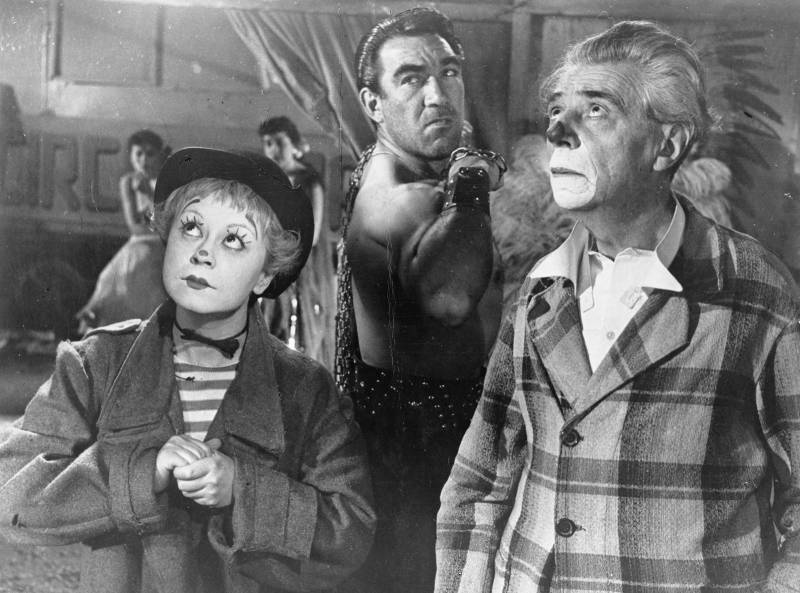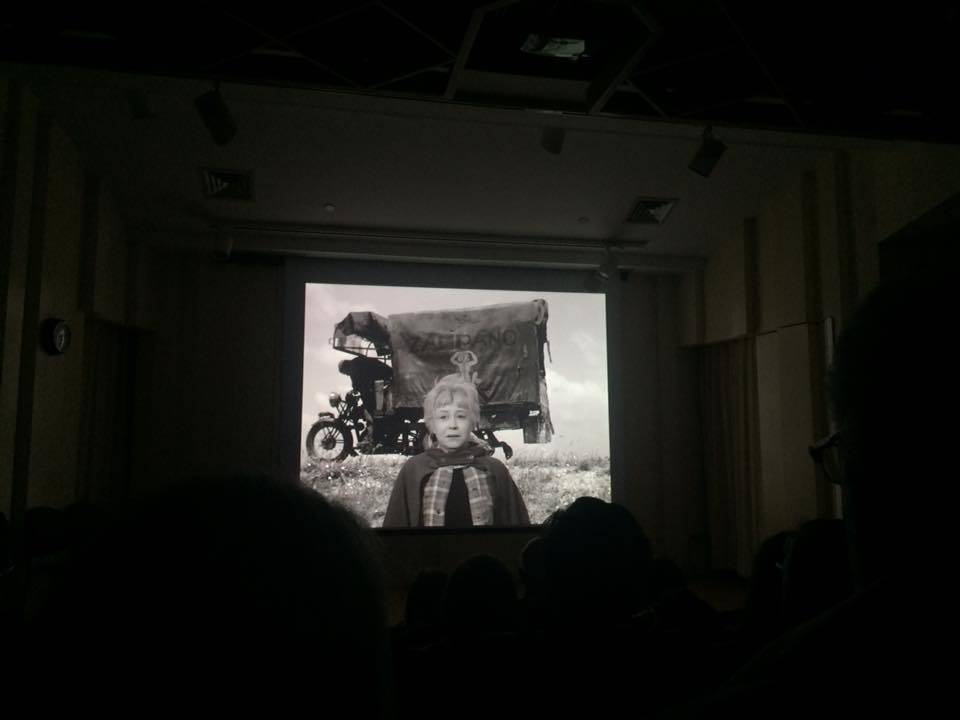Celebrating Fellini and His Inimitable Style at Casa Italiana
On April 18th, 2016 NYU’s Casa Italian Zerilli-Marimò proposed the screening of La Strada, a film by the Italian director Federico Fellini, co-written with Tullio Pinelli and Ennio Flaiano, in a restored version made possible by the Criterion Collection.
The special guests of the evening were Valerio Magrelli, Italian poet, writer and teacher of
French literature from the University of Cassino – and Antonio Monda, professor at the department of cinema and television at NYU, president of the Festa del Cinema di Roma and also collaborator of the Italian newspaper “La Repubblica”.
After introducing the guests and welcoming the audience, the “master of the house” Stefano Albertini began his speech by stressing the importance of having Professor Magrelli who, as a poet, could allow the audience to interpret Fellini’s work with a poetic gaze.
After the film screening, began the proper conversation about it.
The first to speak was Antonio Monda who, after a brief overview on Fellini’s works as a director, explained a few things about the movie. Released in 1954, after two big fiascos (The White Sheik and I Vitelloni) Monda said that La Strada was welcomed by a harsh critical reaction just after its release, before being fully appreciate later, especially by the American audience, and before winning the Oscar as Best Foreign Language Film in 1956.
Monda went on explaining the meaning of some crucial aspects of the movie plot and in particular, he underscored the meaning of the concept of grace and redemption that the movie conveys. In this movie, in fact, we see how Zampanò (the protagonist) is saved in the end by the sacrifice of Gelsomina, the little girl who accompanies him in his adventures as an itinerant street performer and who is portrayed as an ancilla domini, as a servant of God.
The movie was destroyed by the critics when first came out, because it was seen as a sort of a betrayal of neorealism and social issues. Later, the film gained success and it is now considered one of the best films ever. The Professor also pinpointed the fact that the movie is full of moments of genius, and that how even an apparently simple scene can hide an extremely profound meaning, as well as being plenty of Fellini’s characteristic elements, such as religious figures and, of course, the city of Rome.
Professor Magrelli, who even had the chance to meet Fellini in person, despite saying that this movie is not his favorite one, recognized the director’s ability to combine the presence of American famous actors, like Anthony Quinn and Frederic Crawford and the Italian landscapes, as well as the incredible effect that this kind of collusion creates.
Magrelli also mentioned Fellini’s sentimental side and how, as a film director, he always managed to convey the deep commotion of some scenes through refined cinematic techniques.
He also added that even though this was not a huge film, it is an important one, because it makes us understand that Fellini was about to become one of the great directors of all times.
Another important aspect that both Professor Magrelli and Monda touched, was the fact that Fellini, being a self-taught rather than an erudite man, used to rely mostly on the strength of his imagination and sensibility as a man to create and shape his great characters and movies. In this sense, according to Magrelli, Fellini belongs to a different dimension, and for this reason can be considered as a sort of “shaman”.
An interesting reflection was also made when the Professor concluded that probably this movie can be regarded as Fellini’s most poetic one. From this perspective, it can be said that the poetic component of the scenes comes out when there is a sort of “suspension” of the useful narrative, such as the story and the facts that happened and instead we have these magical moments of pure poetry and magic: it is in those specific moments that Fellini has the ability to make us dream.
Thanks again to professor Magrelli, Monda, to Stefano Albertini and to the Casa Italiana Zerilli-Marimò for giving us once again the possibility to commemorate one of the best representatives of the cinematographic culture of our country.




































i-Italy
Facebook
Google+
This work may not be reproduced, in whole or in part, without prior written permission.
Questo lavoro non può essere riprodotto, in tutto o in parte, senza permesso scritto.